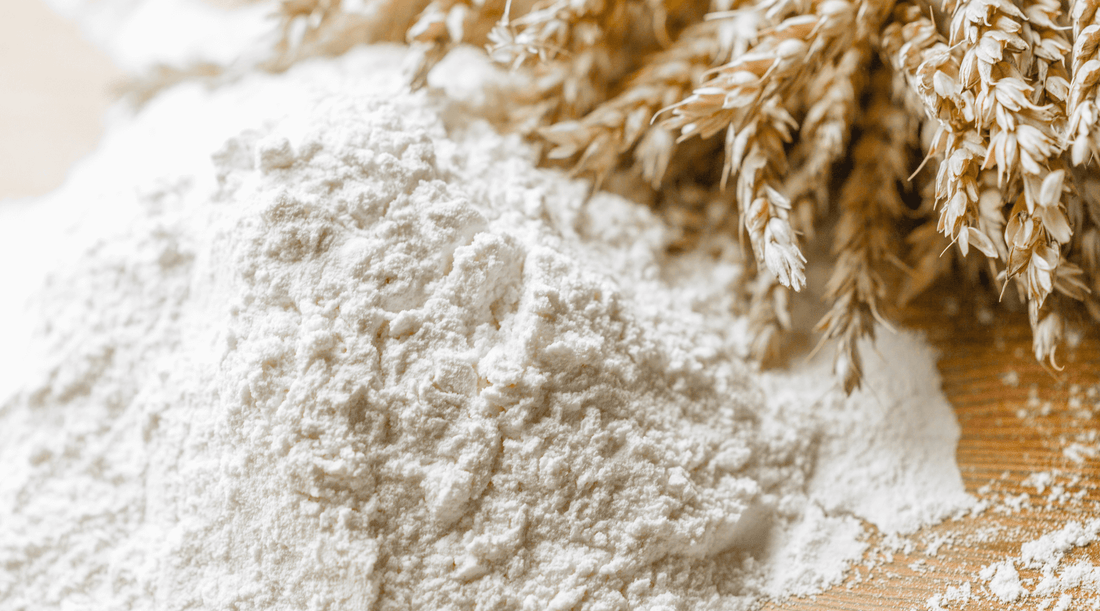Baking is both an art and a science, and the ingredients we choose play a pivotal role in the outcome of our culinary masterpieces. Two ingredients that often come up in baking discussions are all-purpose flour and vital wheat gluten. But what's the difference between the two? And when should you use one over the other? Let's dive in!
What's the Deal with All-Purpose Flour?
All-purpose flour, as the name suggests, is a versatile type of flour suitable for a wide range of baking needs. Whether you're whipping up cookies, cakes, or bread, all-purpose flour is your go-to.
What is the Best Flour for Bread Making?
While all-purpose flour can be used for bread making, many bakers prefer bread flour or high-gluten flour for a chewier texture. But what if you only have all-purpose flour on hand? That's where vital wheat gluten comes into play!
Enter: Vital Wheat Gluten
Vital wheat gluten is the protein found in wheat. It's what gives bread its elasticity and chewiness. When added to low-protein flours like rye or whole wheat, it can enhance the texture significantly.

What Does Vital Wheat Gluten Do in a Recipe?
By adding vital wheat gluten to a recipe, you're essentially boosting the protein content of the flour. This results in a more elastic dough, making it easier to work with, especially for bread recipes.
When Should I Use Vital Wheat Gluten?
If you're aiming for a chewy texture in your bread or if you're working with low-protein flours, vital wheat gluten is your best friend. It's also a fantastic addition if you're trying to reduce your carb intake by mixing it with flour.
What Happens If You Add Too Much Vital Wheat Gluten to Bread?
Like all good things, moderation is key. Adding too much vital wheat gluten can make your bread overly tough. It's all about finding that perfect balance!
Can I Use Vital Wheat Gluten Instead of All-Purpose Flour?
Not exactly. While vital wheat gluten is a powerful ingredient, it's not a direct substitute for all-purpose flour. Think of it as a supplement to enhance certain recipes rather than a replacement.
Do I Need Vital Wheat Gluten If I Use Bread Flour?
Bread flour already has a higher protein content compared to all-purpose flour. However, if you're looking for an extra chewy texture, a little vital wheat gluten can still be added.
The Scratch Difference
At Scratch, based in Phoenix, AZ, we're passionate about providing top-notch ingredients for your baking and cooking adventures. Our Scratch Premium Vital Wheat Gluten is a testament to that commitment. Not only is it perfect for baking chewy bread, but it's also Keto, Vegetarian, and Vegan friendly. And guess what? It's 100% pure gluten, low in fat, sugar-free, dairy-free, and soy-free. So, whether you're crafting delicious seitan or aiming for that perfect loaf, Scratch has got you covered.
Substituting and Adapting in Baking
For those exploring gluten-free options, you might wonder, "Can I substitute all-purpose flour for gluten-free flour?" The answer is yes, but the texture and taste might vary. As for the question, "How much whole wheat flour equals 1 cup of all-purpose flour?" - it's typically a 1:1 ratio, but you might need to adjust the liquid in your recipe.
In Conclusion
Baking is a journey, and the ingredients you choose can make all the difference. Whether you're reaching for all-purpose flour or enhancing your recipe with vital wheat gluten, remember to have fun and enjoy the process. And if you're looking for the best in baking ingredients, remember, Scratch is just a click away!
Happy baking!


